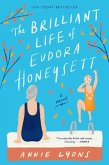NOW THE OSCAR-WINNING MAJOR MOTION PICTURE STARRING EMMA STONE, RAMY YOUSSEF, MARK RUFFALO, AND WILLEM DAFOE, DIRECTED BY YORGOS LANTHIMOS.
"Witty and delightfully written" (New York Times Book Review), Alasdair Gray's Poor Things echoes Mary Shelley's Frankenstein in this novel of a young woman freeing herself from the confines of the suffocating Victorian society she was created to serve.
Winner of the Whitbread Award and the Guardian Fiction Prize
In the 1880s in Glasgow, Scotland, medical student Archibald McCandless finds himself enchanted with the intriguing creature known as Bella Baxter. Supposedly the product of the fiendish scientist Godwin Baxter, Bella was resurrected for the sole purpose of fulfilling the whims of her benefactor. As his desire turns to obsession, Archibald's motives to free Bella are revealed to be as selfish as Godwin's, who claims her body and soul.
But Bella has her own passions to pursue. Passions that take her toaristocratic casinos, low-life Alexandria, and a Parisian bordello, reaching an interrupted climax in a Scottish church. Exploring her station as a woman in the shadow of the patriarchy, Bella knows it is up to her to free herself-and to decide what meaning, if any, true love has in her life.
"Gray has the look of a latter-day William Blake, with his extravagant myth-making, his strong social conscience, his liberating vision of sexuality and his flashes of righteous indignation tempered with scathing wit and sly self-mockery." -Los Angeles Times Book Review
"This work of inspired lunacy effectively skewers class snobbery, British imperialism, prudishness and the tenets of received wisdom."-Publishers Weekly
"Witty and delightfully written" (New York Times Book Review), Alasdair Gray's Poor Things echoes Mary Shelley's Frankenstein in this novel of a young woman freeing herself from the confines of the suffocating Victorian society she was created to serve.
Winner of the Whitbread Award and the Guardian Fiction Prize
In the 1880s in Glasgow, Scotland, medical student Archibald McCandless finds himself enchanted with the intriguing creature known as Bella Baxter. Supposedly the product of the fiendish scientist Godwin Baxter, Bella was resurrected for the sole purpose of fulfilling the whims of her benefactor. As his desire turns to obsession, Archibald's motives to free Bella are revealed to be as selfish as Godwin's, who claims her body and soul.
But Bella has her own passions to pursue. Passions that take her toaristocratic casinos, low-life Alexandria, and a Parisian bordello, reaching an interrupted climax in a Scottish church. Exploring her station as a woman in the shadow of the patriarchy, Bella knows it is up to her to free herself-and to decide what meaning, if any, true love has in her life.
"Gray has the look of a latter-day William Blake, with his extravagant myth-making, his strong social conscience, his liberating vision of sexuality and his flashes of righteous indignation tempered with scathing wit and sly self-mockery." -Los Angeles Times Book Review
"This work of inspired lunacy effectively skewers class snobbery, British imperialism, prudishness and the tenets of received wisdom."-Publishers Weekly
"Gray has the look of a latter-day William Blake, with his extravagant myth-making, his strong social conscience, his liberating vision of sexuality and his flashes of righteous indignation tempered with scathing wit and sly self-mockery." - Los Angeles Book Review
"This work of inspired lunacy effectively skewers class snobbery, British imperialism, prudishness and the tenets of received wisdom." - Publishers Weekly
"A riotously comic, up-to-date Victorian romance . . . deft and frolicsome." - Boston Globe
"Gray here retells a tale that amalgamates Frankenstein and Candide . . . Along the way Gray offers delightful conversation, a tricksy triple ending, and some very witty writing." - Washington Post Book World
"Bella Baxter surely merits a place among the holy innocents of literature-Lemuel Gulliver, Don Quixote, Huck Finn, Prince Kropotkin and Holden Caulfield . . . Bound to call to mind other acidic commentaries on human folly-Rasselas, Tristram Shandy, Candide. But can it be that Gray, with his fierce Hibernian contempt for 20th Century solutions for age-old problems, is the most piercing thorn on the bush?" - Chicago Tribune
"Witty and delightfully written." - New York Times
"Lewis Carroll and Conan Doyle are acknowledged, but the authors Gray really revises are Sterne and Diderot, both comically self-analytic, Defoe, the creator of strong women, and Samuel Johnson or Voltaire, profound allegorists of the search for a good society . . . Poor Things is amusing and admirably angry, compassionate, and ironic as it looks in 1992 at the early days-modern as well Victorian-of a better nation." - Times Literary Supplement (London)
'A magnificently brisk, funny, dirty, brainy book' - London Review of Books
"Visionary, ornate and outrageous." - The Independent
"A brilliant marriage of technique, intelligence, and art." - Kirkus Reviews
"An unexpected final twist doesn't make the novel seem trivial but, on the contrary, gives the vivid melodrama a retrospective gravity. You become aware that this odd book has been a great deal more than entertaining only on finishing it. Then your strongest desire is to start reading it again." - The Spectator
"This work of inspired lunacy effectively skewers class snobbery, British imperialism, prudishness and the tenets of received wisdom." - Publishers Weekly
"A riotously comic, up-to-date Victorian romance . . . deft and frolicsome." - Boston Globe
"Gray here retells a tale that amalgamates Frankenstein and Candide . . . Along the way Gray offers delightful conversation, a tricksy triple ending, and some very witty writing." - Washington Post Book World
"Bella Baxter surely merits a place among the holy innocents of literature-Lemuel Gulliver, Don Quixote, Huck Finn, Prince Kropotkin and Holden Caulfield . . . Bound to call to mind other acidic commentaries on human folly-Rasselas, Tristram Shandy, Candide. But can it be that Gray, with his fierce Hibernian contempt for 20th Century solutions for age-old problems, is the most piercing thorn on the bush?" - Chicago Tribune
"Witty and delightfully written." - New York Times
"Lewis Carroll and Conan Doyle are acknowledged, but the authors Gray really revises are Sterne and Diderot, both comically self-analytic, Defoe, the creator of strong women, and Samuel Johnson or Voltaire, profound allegorists of the search for a good society . . . Poor Things is amusing and admirably angry, compassionate, and ironic as it looks in 1992 at the early days-modern as well Victorian-of a better nation." - Times Literary Supplement (London)
'A magnificently brisk, funny, dirty, brainy book' - London Review of Books
"Visionary, ornate and outrageous." - The Independent
"A brilliant marriage of technique, intelligence, and art." - Kirkus Reviews
"An unexpected final twist doesn't make the novel seem trivial but, on the contrary, gives the vivid melodrama a retrospective gravity. You become aware that this odd book has been a great deal more than entertaining only on finishing it. Then your strongest desire is to start reading it again." - The Spectator

![Poor Things [Movie Tie-In] - Gray, Alasdair Poor Things [Movie Tie-In] - Gray, Alasdair](https://bilder.buecher.de/produkte/68/68319/68319393n.jpg)






